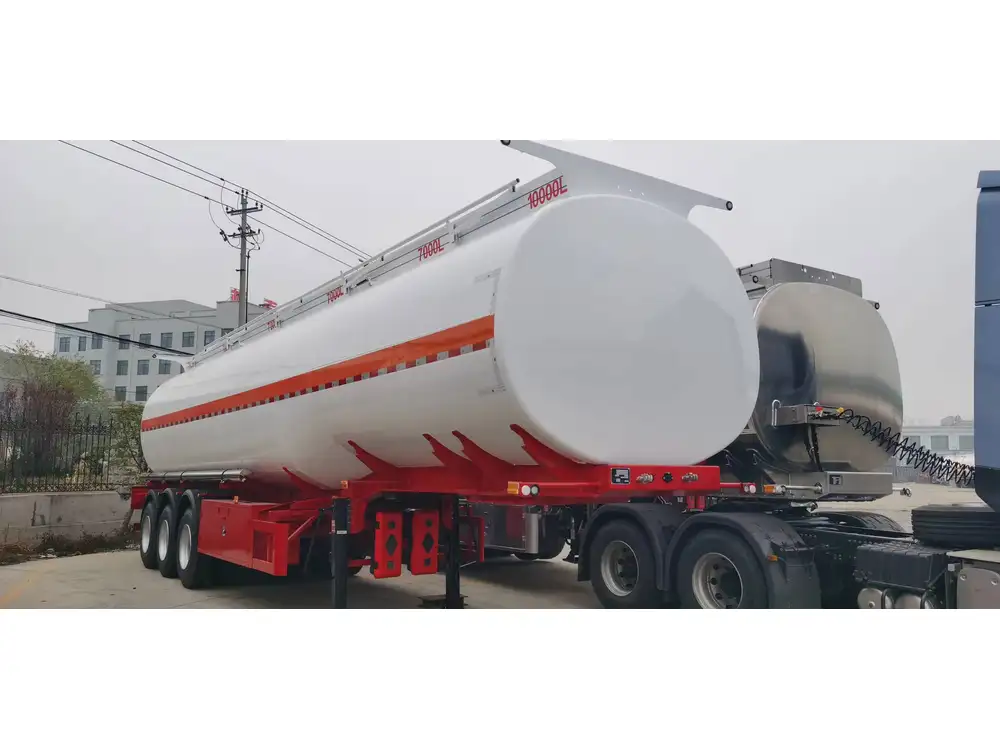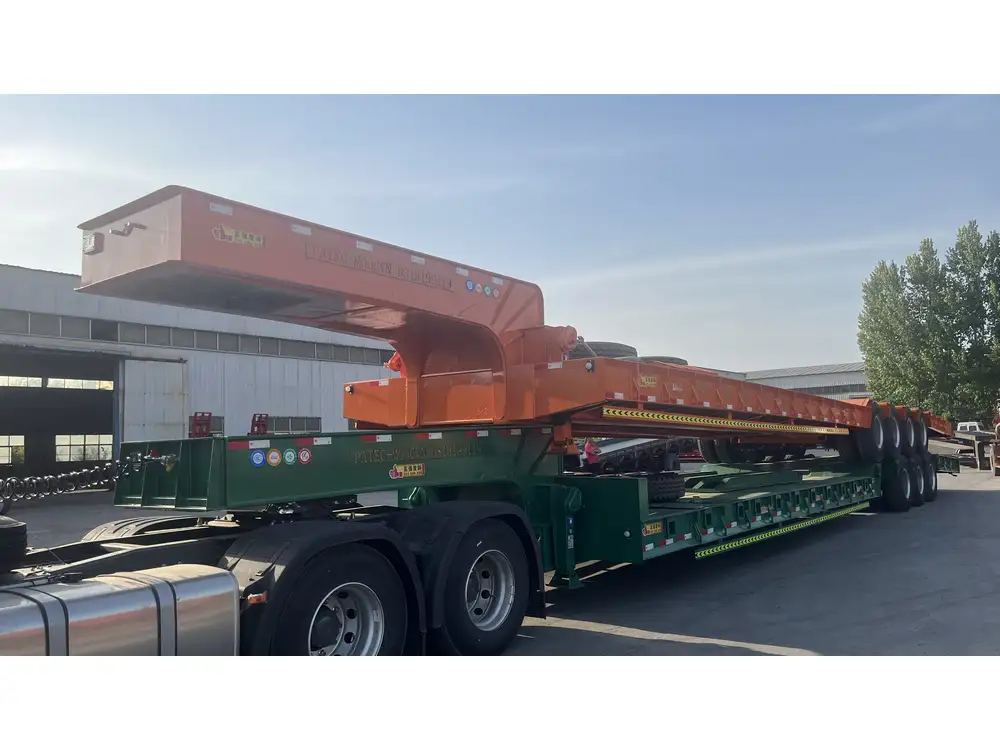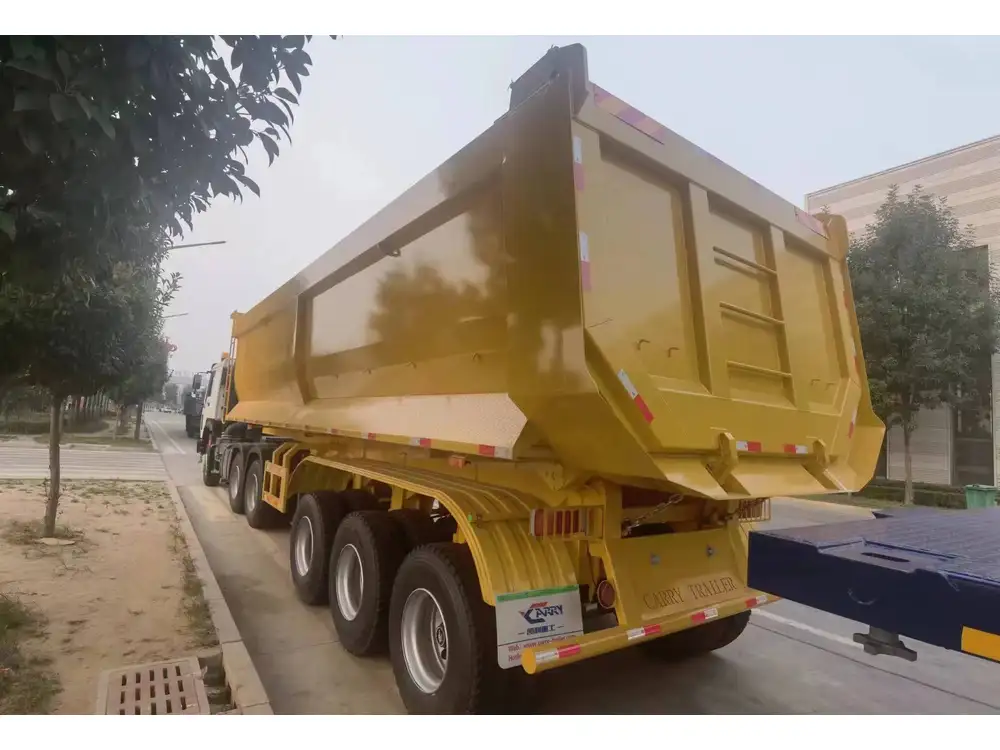When it comes to transporting goods, flatbed trailers are a favored choice among businesses for their versatility and ease of use. Whether you are a construction manager seeking to move heavy machinery, a shipping company transporting large pallets, or simply an individual looking to haul significant items, flatbed trailer rentals serve as a practical solution. This article delves into the essential aspects of flatbed trailer rentals to arm you with the knowledge needed for strategic decision-making.
Understanding Flatbed Trailers
Flatbed trailers are designed with a flat, open platform that lacks sides or a roof, allowing for easy loading and unloading from all angles. Unlike traditional enclosed trailers, flatbeds offer a unique set of advantages, including:
| Advantage | Description |
|---|---|
| Easy Loading and Unloading | The open platform allows forklifts and cranes to access cargo easily from any side. |
| Versatility | Suitable for transporting unusual shapes and sizes, including equipment and machinery. |
| Weight Capacity | Generally higher weight limits compared to enclosed trailers, accommodating heavier loads. |
| Cost-Effectiveness | Rental fees are often lower due to fewer materials and less construction complexity. |
Types of Flatbed Trailers
Before renting a flatbed trailer, it is crucial to understand the various types available:
- Standard Flatbed Trailers: The most common flatbed type; ideal for general freight and construction materials.
- Step Deck Trailers: Feature a lower deck for taller loads, allowing for increased height clearance without exceeding road regulations.
- Lowboy Trailers: Designed for transporting heavy machinery, featuring a lower profile that enables easier loading of tall items.
- Drop Deck Trailers: Similar in function to step deck trailers but designed for different weight distribution and load capabilities.
- Conestoga Trailers: Offer the benefits of a flatbed with added tarping systems for weather protection.
Understanding these variations helps in making informed decisions that align with your specific shipping and transportation needs.

Key Considerations When Renting Flatbed Trailers
Load Specifications
Before renting, consider the type of cargo you’ll be transporting. Different cargo types may have specific requirements such as:
- Weight: Ensure the trailer can handle the total weight of your cargo.
- Dimensions: Measure both the length and height of your load to select the appropriate trailer size.
- Load Security: Understand the necessary equipment, like straps and chains, required to secure your cargo adequately.
Rental Costs
Rental prices for flatbed trailers can vary significantly based on location, duration of rental, and the type of trailer. It’s essential to:
- Request Quotes: Compare prices from multiple rental companies to identify competitive offers.
- Inquire About Hidden Fees: Ask about additional charges for insurance, mileage, and maintenance.

Duration
Determine how long you’ll require the trailer. Most rental companies offer different plans depending on whether you need the trailer for a few hours, a day, or longer.
| Rental Duration | Considerations |
|---|---|
| Short-Term | Ideal for one-off jobs or emergencies; check for hourly or daily rates. |
| Long-Term | Monthly or seasonal rentals can save costs if usage is consistent. |
Insurance and Liability Coverage
Renting a flatbed trailer involves inherent risks, such as accidents or cargo loss. Insurance coverage is crucial. When renting, verify:
- In-House Insurance Options: Determine if the rental company offers coverage for your rental period.
- Third-Party Insurance: Consider purchasing liability insurance from your own provider for additional protection.
Regulatory Compliance
State and local regulations may impose specific requirements on trailer rentals such as:
- Permits for Oversized Loads: If your cargo exceeds standard dimensions, ensure you obtain necessary permits.
- Driver Licensing: Ensure that the person driving the rented trailer possesses the correct class of license required for towing.

Pros and Cons of Renting Flatbed Trailers
Advantages of Renting Flatbed Trailers
- Flexibility: Avoid maintenance costs and ownership liabilities by renting the equipment as needed.
- Access to Modern Trailers: Rentals often provide access to the latest models equipped with advanced safety features, enhancing operational efficiency.
- No Long-Term Commitment: Renting allows for seasonal business fluctuations without the need to invest in permanent assets.
Disadvantages of Renting Flatbed Trailers
- Potentially Higher Long-Term Costs: If you require a trailer regularly, renting can be more expensive in the long run compared to purchase.
- Availability Issues: Demand for popular trailer types can lead to limited availability during peak seasons.
- Limited Customization: Rental trailers may not always meet specific customization needs for unique loads.

Best Practices for Flatbed Trailer Rentals
Pre-Rental Checklist
- Inventory Assessment: Take stock of what you’ll be hauling to determine the specific trailer type needed.
- Review Rental Policies: Familiarize yourself with company policies, including maintenance responsibilities.
- Inspect the Trailer: Before leaving the rental lot, conduct a thorough inspection to ensure the trailer is in good condition.
Loading Procedures
- Weight Distribution: Properly distribute weight across the trailer to maintain stability during travel.
- Secure the Load: Utilize appropriate tie-downs and ensure the load is adequately secured to prevent shifting.

On the Road
- Observe Local Laws: Adhere to all state and local regulations regarding trailer towing.
- Regular Checks: During long hauls, stop periodically to check load security and tire pressure.
Conclusion
Flatbed trailer rentals can significantly enhance your logistics and transportation capabilities, but understanding the nuances of selecting, using, and maintaining trailers is essential. By considering various factors such as cargo type, rental duration, and compliance regulations, you can make informed decisions that serve your business needs efficiently.
From evaluating various trailer types to implementing best practices in loading and transportation, being armed with the right information creates a smoother, more productive rental experience. Whether you’re enhancing construction capabilities or improving shipping logistics, flatbed trailers represent a cornerstone of modern transport solutions that, when utilized properly, deliver both efficiency and reliability.
By integrating these practices into your rental strategy, you not only leverage the benefits of flatbed trailers but also safeguard against potential pitfalls, thereby positioning your business for success in an ever-evolving market.



